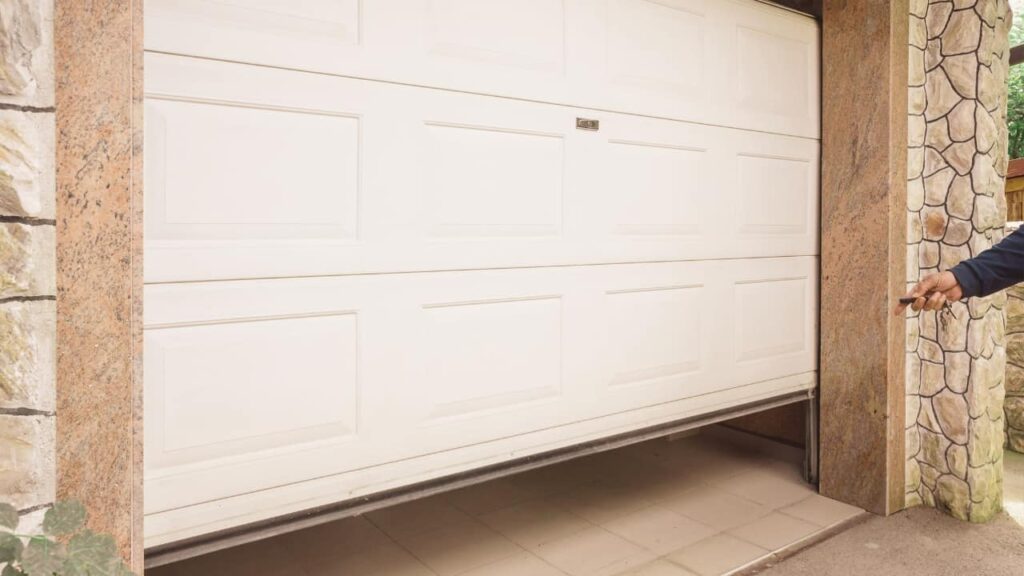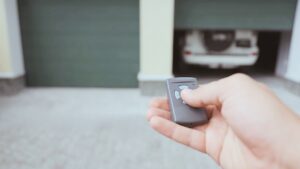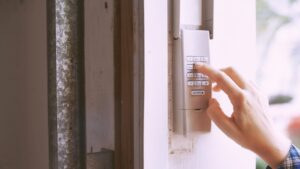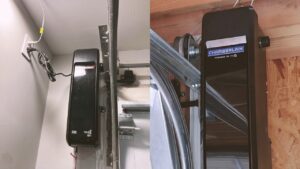So you’ve noticed that your garage door jerks when closing in the last few days. When you first experienced this, you thought that maybe it was just a one-time thing and it would fix itself. Unfortunately, it doesn’t. Your frustration grows, and now you want it fixed.
A jerking garage door is more than just a minor annoyance, it’s an issue shared by many homeowners like you. If left unresolved, it can escalate into a safety hazard.
Luckily, this common garage door problem is easy to fix.
In this blog post, we will discuss the five most common reasons why your garage door jerks when closing and some easy-to-follow solutions to get your garage door running smoothly again.
5 Reasons Why Your Garage Door Jerks When Closing
Here are the top five explanations for why your garage door may be exhibiting a jerky movement while closing:
1. Misaligned tracks
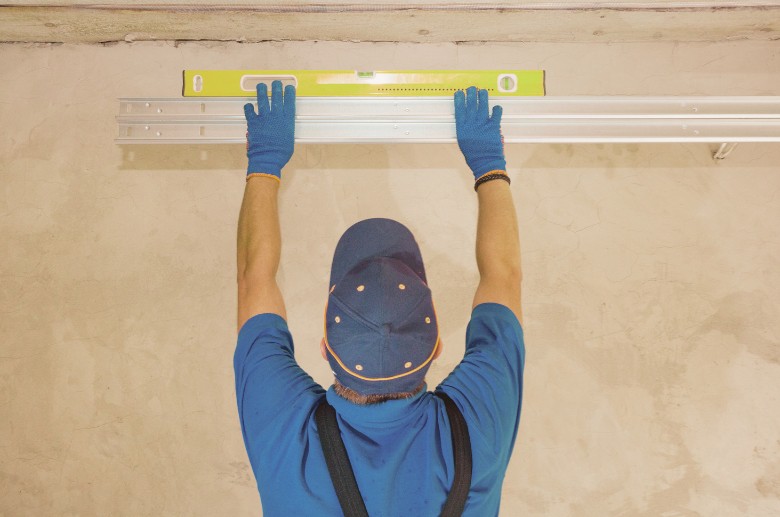
The tracks on both sides of your garage door guide it when opening and closing. Over time, with constant use, the tracks can become misaligned, causing your door to jerk or stick on its way down.
2. Cable Drum or Pulley problem
Drums or pulleys on your garage doors guide the cables, which help them move up and down. It supports the weight of the door, keeping it moving smoothly. Regular use or exposure to harsh weather conditions can damage or wear down your garage door’s pulley and drum, which can cause it to jerk and make noises.
Connect With A Garage Expert
Connect with local experts, Compare quotes, Get the best price.
3. Roller damage
Rollers keep your garage door balanced and stiff and guide it along its tracks. Rust, dirt, or debris can accumulate on the rollers over time, so if they’re not well-maintained, the rollers can get damaged or worn, causing your garage door to jerk or stop moving altogether.
Garage Insiders Tip: When you hear an unusual noise coming from your garage door, do not ignore it. Do not continue operating your garage door with damaged rollers because you might damage its other components.
4. Old or broken garage door opener
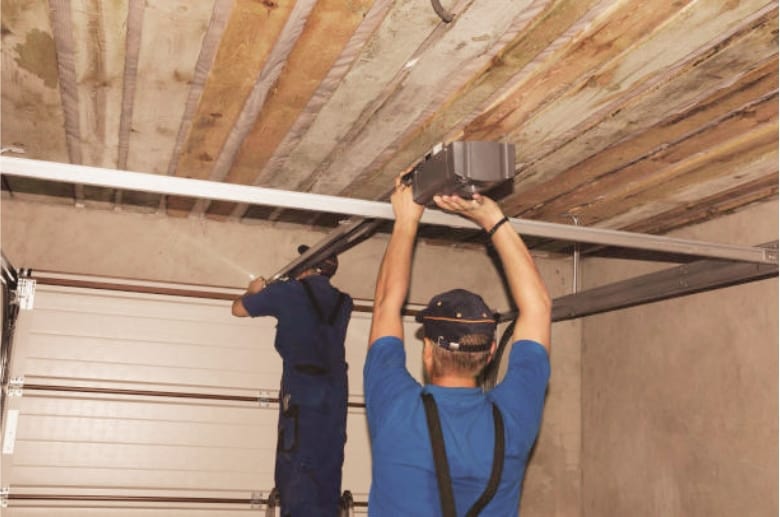
Your garage door opener is the most important component of your garage door because it is responsible for moving the door up and down. An old or broken garage door opener cannot handle the weight of the door or move it smoothly, causing uneven movement and jerking when you try to close it.
5. Loose components
As you know, your garage door comprises several components to ensure it operates smoothly. If your door suddenly starts jerking when closing, it may be caused by loose components, and this could be anything from loose bolts or screws to worn-out hinges or springs.
How to Fix a Jerking Garage Door
Here are some practical steps to follow when your garage door starts to jerk:
Look for dents
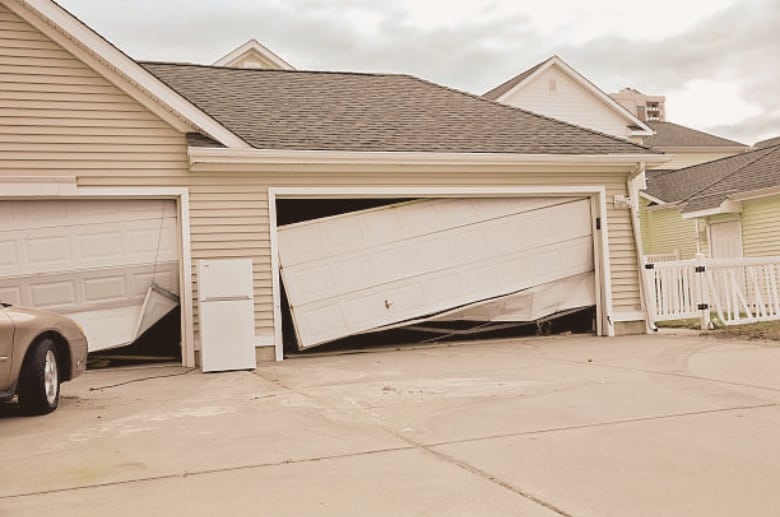
Remember that one time when you accidentally bumped into your garage door while you were backing out of your driveway? That could have caused dent spots in your garage door panels, causing it to become off-balance and, in turn, making it jerk when you try to close it. Remember, it can also get unsafe if your garage door gets jammed when you try to operate it.
Inspect the exterior of your garage door for dents. A quick DIY fix is using a plunger to push the dent out from the backside. If the dent is something you aren’t capable of fixing, contact a garage door expert.
Realign or clean safety sensors
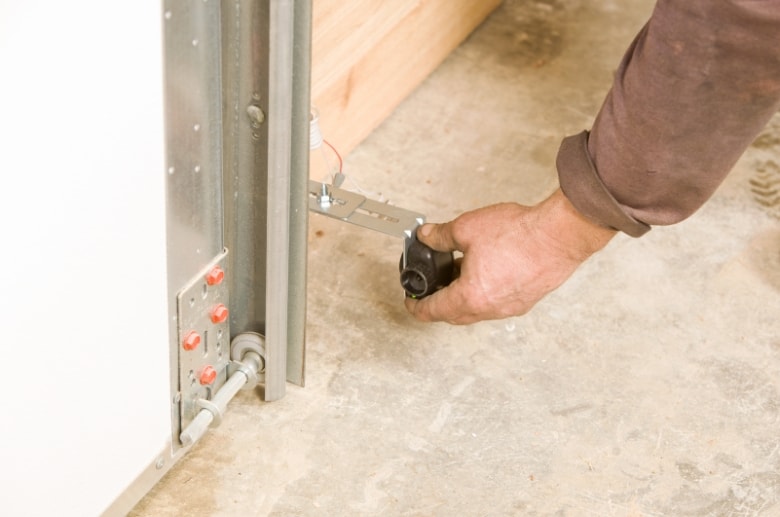
Federal laws require modern garage doors to have safety sensors to prevent accidents and injuries. These sensors can be accidentally nudged out of position, or dust can accumulate on them, leading to operating issues such as your door jerking.
Regularly clean your sensors with a soft cloth and check if they are properly aligned.
Apply lubricant to components and remove debris from tracks
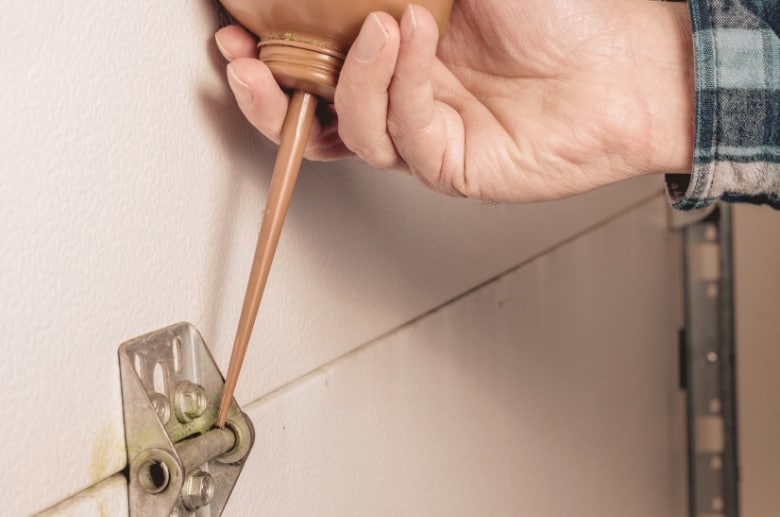
During a harsh winter, your garage door track can accumulate ice and dirt. Storms may also blow in debris, such as leaves or twigs, which can hinder the door’s movement.
When the components of your garage door become dry, it can cause your garage door to jerk due to friction. We recommend that you apply a silicone-based lubricant to your door’s rollers, hinges, springs, and tracks. Additionally, remove any dirt and debris obstructing the tracks for your garage door to operate normally again.
Replace worn-out parts
You go to work, and your kids go to school five days a week. That means your garage door is hard at work. One day, you notice that your garage door cable is starting to unravel and has become frayed, causing jerking movements when you open or close the door.
Your garage door is a machine made up of several parts that can wear out over time. Worn-out parts, such as springs and cables, can create hazards during operation when they suddenly stop working altogether and may cause severe damage if not replaced.
Replace any worn-out parts as soon as possible to prevent further damage and ensure your family’s safety.
Connect With A Garage Expert
Connect with local experts, Compare quotes, Get the best price.
Tighten or Replace Loose or Damaged Hardware
Your garage door might start jerking if the components that keep it in place are loose or damaged. Inspect and tighten or replace any loose or damaged hardware that holds your garage door in place, such as screws, bolts, or nuts.
Replace an Old or Damaged Opener
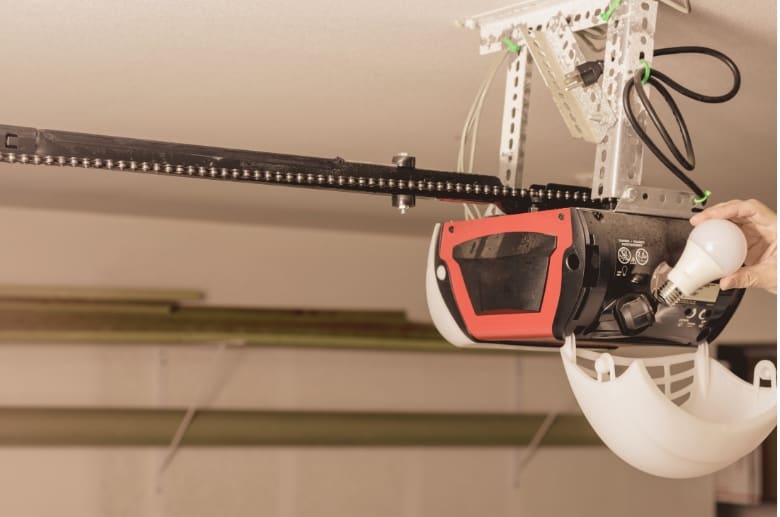
On average, a garage door opener lasts between 10-15 years, although some garage door experts have seen Liftmaster garage door openers last around 20 years. Isn’t that amazing? However, this is considering that your garage door opener is well-maintained and in excellent condition. Anything less than that can reduce its lifespan.
So check your garage door opener. Does it struggle to lift the weight of your garage door, causing it to jerk? Is it older than your daughter, who just recently celebrated her sweet sixteen? If you said yes to both questions, this means it may be time to bid it adieu and say hello to a new garage door opener.
Upgrading to a newer, more modern opener will fix the issues and provide you with many more safety features, making it a worthwhile investment.
Adjust The Opener Force or Balance The Door
If the first six solutions didn’t help you, you might want to try adjusting your opener’s force control or checking for any imbalance in the garage door.
Your garage door can jerk if the opener force is set too high or if the door is unbalanced. Try adjusting the spring tension to restore balance to your door.
When Should You Call a Professional?
While the tips we mentioned above can help prevent a jerking garage door, there are times when you may need to call in a professional to fix the underlying issues. The costs might be far different compared to doing it yourself, but there’s nothing better than having the job done by someone who knows what they’re doing.
Garage Insiders Tip: When choosing a garage expert, make sure to compare services offered, customer support, fees, and experience before making your decision.
Final Thoughts
When you can identify the root cause of why your garage door jerks when closing, you’ve successfully solved half the problem. You’ll be able to know exactly what your garage door needs to operate properly again. These culprits can be easily resolved with regular maintenance and care, from misaligned tracks to worn-out cables.
Remember, maintaining your garage door not only saves you money in the long run but also ensures your home and family are safe. When necessary, don’t hesitate to seek help from the experts.
Want to learn more? Explore our blog posts, where we provide you with everything you need to know about your garage.

